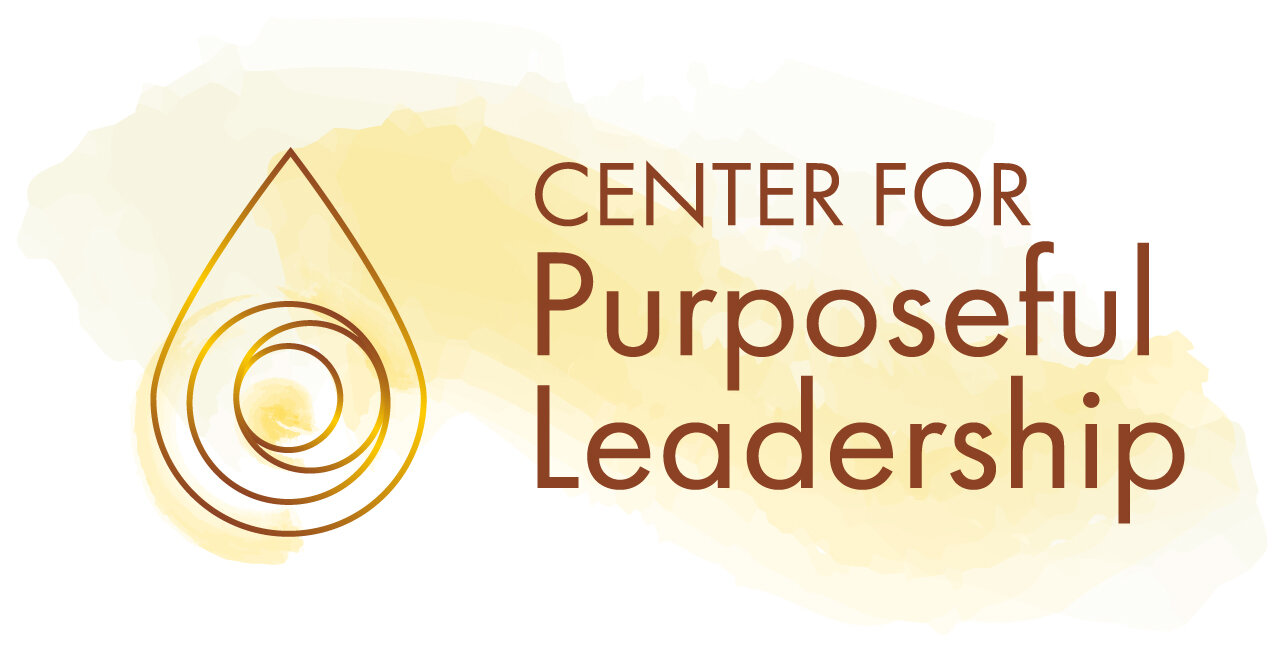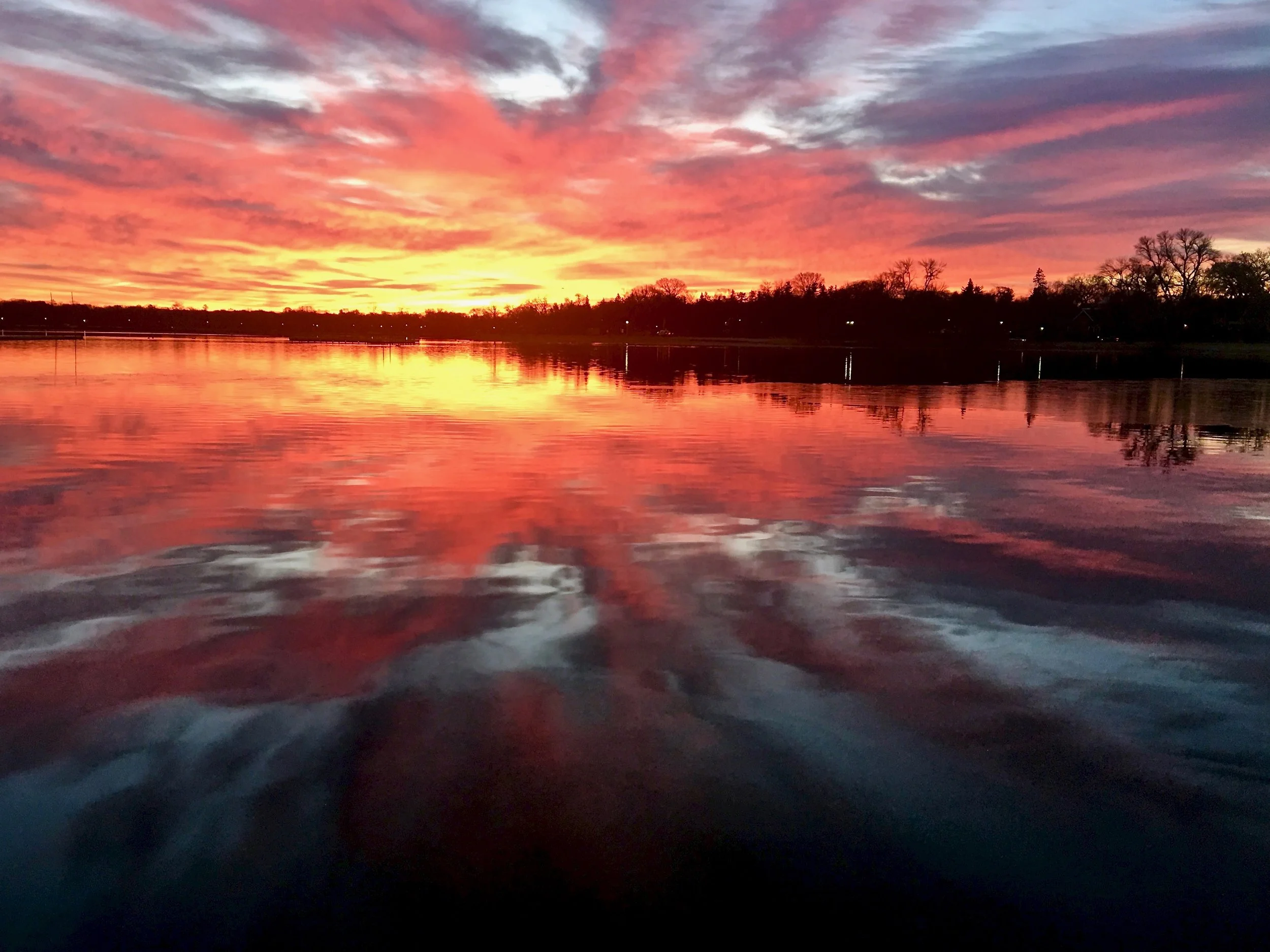How Shall We Live?
/By Richard Leider, inventure - the purpose company
[Note: Originally posted by Richard on 12/04/20, the questions posed are more relevant than ever.]
CAN WE GROW FROM CRISIS?
How shall we live post-pandemic? Can we find positive change in this crisis – a new appreciation of life, a newfound sense of personal strength, and a new focus on purpose? As Caroline Myss states, “Healing comes from gathering wisdom and letting go of the pain that the education cost you.”
In his novel, A Farewell to Arms, Ernest Hemingway wrote, “The world breaks everyone, and afterward, many are strong at the broken places.” A more well-known version of this insight is Nietzsche’s, “That which does not kill us makes us stronger.” These quotes speak to the possibility of growth from adversity.
The pandemic changed everything – our false sense of certainty and security. But, can we grow from this crisis? Yes! Research has shown growth after wars, earthquakes, divorces, cancer, and loss of loved ones. We can grow and build new strength from our experiences of COVID-19.
Whether our struggles are major traumas or the inevitable suffering that all of us will experience, each of us has the possibility to recognize positive effects that have come from adversity.
YES TO LIFE: IN SPITE OF EVERYTHING
Viktor Frankl was a Jewish psychiatrist who spent three years during World War II living in horrific circumstances in three of the worst Nazi concentration camps. By sharing Frankl’s story, I am, most definitely, NOT implying that traumatic events are good – they are not. I am supporting Frankl’s own growth as he writes: “The last of the human freedom’s is choice – to choose your way in spite of the circumstances.”
In his recently released book, Yes to Life: In Spite of Everything, he offers an insightful exploration of his basic conviction that every crisis contains opportunity. Eleven months after he was liberated from the camps, Frankl held a series of public lectures explaining his central thoughts on meaning, resilience, and the importance of embracing life even in the midst of great adversity. Frankl’s insights resonate as strongly today – as the world faces the pandemic, social isolation, and economic uncertainty.
While in the camps, Frankl realized he had one single freedom left. He had the power to choose his response to the horror around him. And so, he chose to make a difference. He chose to get up every day and give others a kind word, a crust of bread, hope. He imagined his wife, Tilly, and the prospect of being with her again. He imagined finishing the book that he had been writing up to the very day he was imprisoned. He wrote it over and over in his mind and on tiny scraps of paper that he hid. He imagined himself teaching students after the war about the lessons he had learned. He learned from the strength of his fellow inmates that it is always possible to say “yes to life.”
Tragically, Frankl survived but his family did not. Leaving the camp weighing 87 pounds, he went back to Vienna to heal. When he recovered, he went on to chronicle his experiences and the insights he had drawn from them. In nine days, he wrote his classic book, “Man’s Search for Meaning,” which has sold millions of copies and helped millions of people struggling with trauma and crisis.
FREEDOM TO CHOOSE
A human being is a deciding being, Frankl wrote, “Between stimulus and response there is a space. In that space is our power to choose our response. In our response lies our growth and our freedom.” In that space lays the power of choice. Our choices are very real and potentially lifesaving or life-changing.
Frankl believed, “One should not search for an abstract meaning of life. Everyone has his own vocation or mission in life to carry out a concrete assignment, which demands fulfillment.”
That concrete assignment is a choice to “say Yes to Life.” It’s a spiritual call to wake-up on purpose. As our purpose evolves over our lifetime, it gives our lives meaning. We are not burdened by purpose as a sense of duty or moral obligation. We choose to make a difference because we recognize that it is our calling.
Throughout history, humans have sought to make sense of their lives, searching for meaning through prayer, retreat, art, music, nature, volunteering, and multiple other ways. Traditionally, purpose was connected with the spiritual aspect of our lives. Healers, elders, priests, and shamans were the guides who helped us make sense of our world and our place in it.
SCIENCE AND FRANKL AGREE
Now science is validating what Frankl and most world religions teach – that purpose is not a luxury for good times. It is fundamental and it is as old as humankind. Studies now show the role purpose plays in helping ailments ranging from pain and depression to Alzheimer’s and other diseases. Though the purpose effect remains largely shrouded in mystery, researchers now attribute some aspects to active mechanisms in the brain that influence the immune response and the will to live. Purpose science shows having a reason to live that’s more important than ourselves – whatever level of adversity we face – is universal and fundamental to surviving and thriving.
When it comes to life’s inevitable breakdowns, purpose can provide breakthroughs. Purpose gives us the will to live – a reason to get up in the morning. Purpose is the one thing that cannot be taken from us.
GROWTH FROM TRAUMA
Post-traumatic growth (PTG) is a psychological transformation that follows a stressful life crisis. It is a way of moving through and beyond the pain. PTG can potentially change the way we perceive the world. It can come with new answers to the eternal question, “How shall we live?”
PTG is a theory that explains why some people grow following crisis. It was developed by psychologists Richard Tedeschi and Lawrence Calhoun in the mid-1990s. It holds that some (not all) people who endure psychological struggle following adversity can see positive growth.
Tedeschi relates, “People develop new understandings of themselves, the world they live in, how to relate to other people, the kind of future they might have, and a better understanding of how to live life.”
HOW SHALL WE LIVE?
To determine “how shall we live?” after trauma or crisis, Tedeschi and Calhoun developed the Post-Traumatic Growth Inventory. It looks for positive responses in five growth areas:
Appreciation of Life – a greater appreciation of life in general.
Relationships with others – closer relationships with specific people and an increased sense of connection with others who suffer.
Clarity of strengths – An “If I lived through that, I can face anything” mindset.
New possibilities in life – a sense that new choices have emerged from the struggle.
Spiritual enhancement – a deepening of spiritual life and/or a significant shift in one’s beliefs.
PTG is not universal. Nor, is it uncommon. Not everyone who faces a crisis experiences growth. Most of us have a variety of reactions. And, just because we experience growth does not mean we will not suffer. It’s how we face our suffering and how we choose to answer the “How Shall we Live?” question.
This doesn’t mean that trauma is good or that even the most resilient people won’t experience suffering or need time to heal. Rather, knowing that adversity and suffering are part of the human experience, “growth” is a way to recognize positive aspects of life that we too often don’t pay attention to.
Try this:
Think of a negative event in your life that caused you pain, stress, anxiety, or suffering. Try to identify any positive effects that may have happened because of this experience. Did you:
Appreciate something in your life more than before?
Improve an important relationship or end a bad one?
Discover a strength you didn’t know you had?
Gain confidence or become more courageous?
Become more compassionate or forgiving?
At CPL, we use the principles of The Art of Convening as a “true north” guide to how we want to BE as humans, seeking authentic engagement and community.



